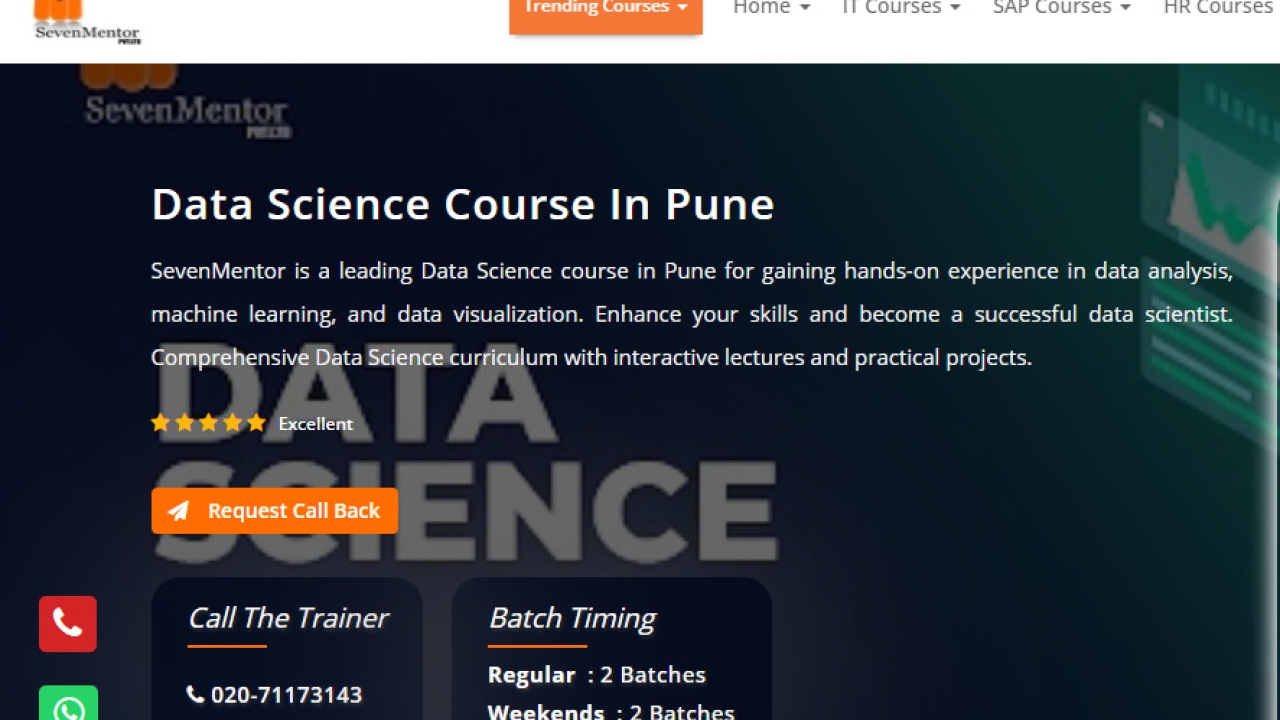What are some essential skills for a Data Scientist beyond technical expertise?
Posted on 3 August, 2023 by Seven Mentor

Beyond technical expertise, there are several essential skills that can greatly enhance a data scientist's effectiveness and impact. These skills revolve around communication, collaboration, and the ability to understand and address real-world business problems. Here are some key skills:
Communication Skills: Data scientists need to communicate their findings and insights to various stakeholders, including non-technical audiences. Clear and effective communication is crucial for explaining complex concepts, presenting results, and influencing decision-making.
Business Acumen: Understanding the business context and objectives is essential. Data scientists should be able to translate technical insights into actionable recommendations that align with the organization's goals.
Problem-Solving: Data scientists should be skilled problem solvers, capable of defining and structuring complex business problems into solvable analytical tasks. Creativity and critical thinking are important for developing innovative solutions.
Collaboration and Teamwork: Data science often involves cross-functional collaboration. Being able to work effectively in interdisciplinary teams, understanding the perspectives of colleagues from different backgrounds, and contributing to collective problem-solving is vital.
Domain Knowledge: Developing expertise in the specific industry or domain in which you work allows you to better understand the data, make more informed decisions, and provide more relevant insights.
Ethics and Privacy Awareness: Data scientists must consider the ethical implications of their work, especially when dealing with sensitive data. Understanding privacy regulations and ensuring data security are crucial aspects of responsible data science.
Visualization Skills: Creating compelling data visualizations can help convey insights more effectively. Proficiency in data visualization tools and techniques helps in presenting complex findings in an understandable and impactful way.
Time Management: Data science projects can involve multiple tasks and deadlines. Effective time management ensures that projects are completed on time and that priorities are managed appropriately.
Adaptability and Learning: The field of data science is rapidly evolving. Being open to learning new techniques, tools, and approaches is important for staying up-to-date and remaining effective.
Stakeholder Management: Data scientists often interact with stakeholders with varying levels of technical knowledge. Being able to manage expectations, listen to feedback, and tailor communications to different audiences is essential.
Experimental Design and Hypothesis Testing: A strong understanding of experimental design and hypothesis testing helps in conducting rigorous and reliable analyses, ensuring that results are statistically valid.
Storytelling: Transforming data insights into compelling narratives helps in conveying the significance of findings and making a stronger impact on decision-makers.
Project Management: Being able to plan, execute, and manage data science projects efficiently helps ensure that they are completed successfully and deliver value to the organization.
Networking and Continuous Learning: Building a professional network, participating in industry events, and engaging with the broader data science community can provide opportunities for learning, collaboration, and staying informed about industry trends.
These skills, when combined with technical expertise, can help data scientists effectively bridge the gap between data analysis and business impact.
Learn Data Science Course in Pune